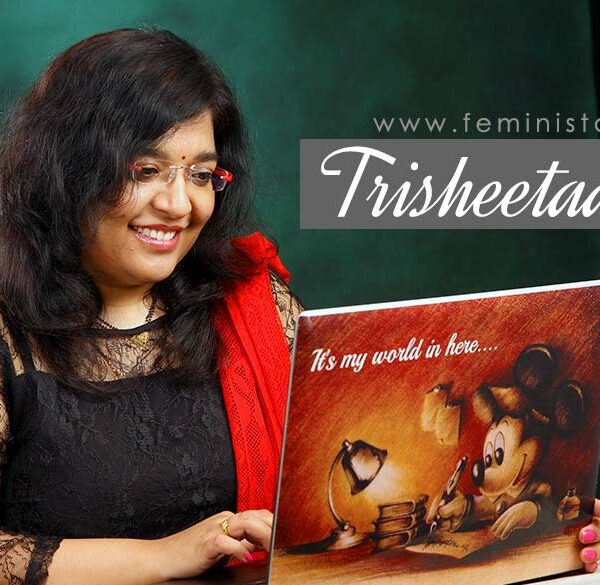Bravo Remya!
The entire social media saw how she called off her wedding as her fiancée’s family demanded dowry. A resident of Thrissur in Kerala, she openly stated in her Facebook post:
“Since I am a staunch opposer of dowry, buying a person and his family who can’t keep their word for such a huge sum is a bad deal. Because of this belief of mine, I have decided to not go ahead with this marriage. Thanks.”
With so much of hullabaloo, Remya’s post went viral, reaching out to millions of Indians, making them question just one single fact ‘Is Dowry still prevalent in India?’ The sad fact is, yes it is.
Unfortunately, our society is filled with invisible and countless other Remyas, who remain silent, embrace the suffering, allowing themselves to be ‘purchased’ in the name of marriage. They never shout, scream or call off their weddings, hence, they are unable to shoot into limelight. Like appendages and parasitic liabilities, they lose their identities, unable to earn their name and integrity.
Indian women, popularly known as the ‘Suffering Sita’s’ by the famous author ‘Apurva Purohit’ suffer from Stockholm Syndrome, a pyschological disorder in which the victim starts developing a soft corner for the one who perpetuates aggression.
They love to repent, believe that they had no choice and that they are poor species of creatures. After all, to stand and fight it out, one needs guts and not everyone has the courage.
Is Dowry still practiced in India?
Officially, the Indian government has declared dowry illegal through an act passed in 1961, which was later amended in 1984 and then later in 1986. But in spite of being ‘illicit’, the custom of dowry still continues, both in the urban and rural parts of India, with even the police turning a blind eye to it. This custom which was initially started off as a gesture to show their love to their daughter during marriage by gifting her essential accessories has now ruthlessly transformed into a forced act.

During the times of pre-capitalist India under the colonial rule, the pressing financial needs and heavy tax burdens forced peasant families to opt for more cash, which would increase the would-be husband’s income. Thus, the system turned marriage into a ‘contract’ where the wife was nothing but a liability which incidentally bought with herself monetary assets to enhance the per capita income of the family. This custom, with time, turned even more obnoxious, becoming a major force of patriarchal oppression.
Why do women still pay dowry?
In today’s time, when women and men are both financially independent, educated and empowered – how does dowry still figure in? There are several reasons behind it. To start with, firstly, most of the marriages in India are still arranged. In states like Uttar Pradesh and Bihar, a ‘son’ is considered as a ‘messiah’ and hence, his marriage needs to be flawless. The bride needs to have ‘glowing milky-white skin’, with a government job, slim figure and of course, beautiful looks. To top it, her family should afford the dowry, which ranges from several lakhs to crores. Thus, arranged marriages are nothing but transactions, integrated with the society’s culture. At the same time, it does not mean that love marriages do not have the concept of dowry. They do, but with lesser chances.

Secondly, dowry demands reveal how society actually perceives a woman. No manner how educated and financially settled she is, at the end of the day, she is incomplete without a man. She cannot be without a husband who will take care of her and make her feel complete. Hence, the patriarchal objectification reduces her entire identity which curbs her real aspirations, voice and demands. It would not be wrong to say that several families, after regaining their courage as the girl child is born, start saving for her dowry from day one. Thirdly, and most importantly, this custom is not just maintained by men, but women play an equal role in it. The fact that they allow it to happen makes them a culprit too. Also, most of the mother-in-laws are much more adamant about dowry, than their male counter-parts. More the dowry, merrier would be the longevity of the bride’s survival in the new household.
The custom has become so ingrained in our culture that if a man says ‘no’ to dowry, he is looked at with appreciation and dollops of respect. But in reality, he just did what any secure individual would do, who believes in gender equality. The fact that it is made into a heroic act reveals how wrecked out custom is. In a country where honour-killing is still very much prevalent, dowry deaths still feature in the news.
In 2012 alone, the National Crime Bureau revealed that 8,233 deaths had taken place due to dowry. But do keep in mind that these are ‘reported’ statistics. The real, vulgar and heart-wrenching stories are hardly reported.
Why do women surrender?
nd customary practice of dowry still continues because women have allowed it to. In spite of having the choice, they too opt for a bridegroom with deep pockets, who can satiate their needs and pleasures. Most importantly, they feel scared of being disowned by their own family and the society if they choose to remain single. There is a constant lack of awareness regarding a woman’s rights, laws that protect them and the inadequate role of the police to ensure safety. Women feel unsafe as they grow up and believe that ‘marriage’ is the answer, a give-and-take institution which would safeguard them, even if it comes with the price of dowry.
Well, to women out there who have invested a lot in earning their own name and identity, you must stand strong and say ‘no to dowry’.
Understand that you are not a commodity that can be purchased. Also, a relationship based on monetary transaction can never be deep-rooted, hence, always fake and superficial in reality.
So, be yourself and fight it out. No one has the right to ask dowry from you. Don’t worry what the society will say, it hardly matters now. After all, it’s your life, your choice. Never ever let that choice be taken away from you.












